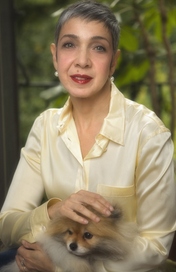GUEST POST FROM YONA ZELDIS MCDONOUGH, AUTHOR OF COURAGEOUS
The idea for Courageous wasn’t
even mine. An editor at Scholastic
contacted me and said the idea for a middle grade book about the evacuation at
Dunkirk had been approved in-house and that they were looking for a writer;
might I be the one? Since I had already
done something similar with The Bicycle Spy—Scholastic had handed me the
idea and I developed it into a successful
book—I knew that this was a way of working that challenged me, in a good
way, so I was game to try it again. I
fleshed out the synopsis, wrote a few sample chapters and waited; in a few
weeks, I was told that I had the job.
I
knew very little about what happened at Dunkirk before I started researching
it, but what I found out intrigued me.
Rather than a military victory, Dunkirk was a retreat in which the real heroes
were not soldiers, but brave British civilians who stepped in to save their
boys—and a lot of other boys too. I
loved the idea of writing about ordinary people, like Aidan, Sally and the rest
of the village, who risked life and limb to help the stranded troops. In rowboats, fishing boats, and sailboats,
armed with thermoses of tea and the occasional Union Jack, men and women
crossed the English Channel and brought over 300,000 men to safety. It was a
stirring, inspiring tale.
Since
the movie was in wide release while I was researching and writing the book, I
naturally went to see it. I’m not a fan
of war movies, and I approached this one with a sense of dread mixed with grim
obligation. Of course I was going to see
it, but that didn’t necessarily mean I would like it. To my surprise, I liked it very much and
found it a nuanced and unexpected treatment of the subject.
Courageous in no way
resembles the film. But it was through
watching it that I was able to expand upon my own story, giving it both texture
and heft. For instance, watching
several scenes that took place on the beach, I realized that the soldiers would
have sand everywhere—in their boots, their uniforms, their hair, mouths and
noses. And that soldiers who survived
the explosion of their ship and landed in the water, would end up covered in
grease and oil. Such small but telling
details helped make me create characters and situations that seemed real.
I
was also able to inject my own beliefs about war into the story, and made it
clear that while war may sometimes be necessary, it’s still a horrific
experience for soldiers on both sides of the conflict. I allowed George, Aidan’s enlisted older
brother, to muse on what the death of a German soldier—a man even younger than
he is—will mean to that boy’s parents, family and friends. I took pride in conveying that in more than
one scene, and developed the theme throughout the novel.
Writing
about what you know and love is one kind of pleasure; writing to extend the
breadth and depth of your understanding and awareness is another, and I’m
grateful that writing Courageous gave me that chance.
~
Grab a copy of COURAGEOUS.
Keep up with Yona Zeldis McDonough.


Comments
Post a Comment